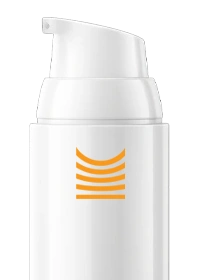
Understanding Abdominal Fat: Causes, Health Risks, and Lifestyle Management Strategies
- Jump to a Section:
For many men, carrying extra weight around the midsection is a regular part of life. However, medically speaking, excess weight around the abdominal area can be a significant risk factor for heart attack, cardiovascular disease, diabetes, stroke, high blood pressure, and even erectile dysfunction.
A "beer belly" is composed of visceral fat, which is stored deep inside the body around internal organs, causing the abdomen to protrude. Unlike subcutaneous fat, which you can see and feel just beneath the skin, visceral fat is much deeper and can pose health risks when present in large amounts.
Importantly, abdominal visceral fat accumulation is not solely related to alcohol consumption. While it's typically associated with drinking large quantities of alcohol, eating too much sugar, trans fat, and refined carbohydrates can also contribute significantly to this type of fat storage.
Why Are Men Prone to Developing Abdominal Fat?
Where you gain weight depends on several factors including age, sex, genetics, and activity level. However, most men tend to store excess calories from sugar, carbohydrates, and trans fats as abdominal fat. This could be due to their higher production of chylomicrons—lipoproteins that transport fat from the intestine to the liver and adipose tissue.
Men naturally have a more muscular body composition, whereas women tend to have higher percentages of body fat distributed differently. Most men are likely to be "apple-shaped," meaning their bodies predominantly store fat in the abdomen. Women may be apple or pear-shaped, where fat is more commonly stored in the lower abdomen, hips, thighs, and butt.
Sex Differences in Fat Distribution
Women generally have a higher volume of body fat and subcutaneous adipose tissue (SAT) compared to men, who have more lean muscle mass and visceral adipose tissue (VAT). These physiological differences can contribute to men accumulating visceral fat around their midsections more quickly when they gain weight.
This distribution pattern is influenced by:
- Hormonal differences (testosterone vs. estrogen)
- Genetic factors
- Metabolic differences
- Age-related changes
Why Is Upper Belly Fat Firm?
Subcutaneous fat feels soft because it sits just beneath the skin, on top of muscle. Visceral fat is much deeper, surrounding internal organs, which causes it to feel firm when you press on the abdomen. You can't pinch or squeeze visceral fat the same way you can subcutaneous fat. Instead, the characteristic belly appearance is caused by a build-up of hidden fat that makes the abdomen extend outward.
Visceral fat feels firmer than subcutaneous fat because of its location deep within the abdominal cavity, around organs like the liver, pancreas, and intestines. While small amounts of visceral fat are normal and provide cushioning and protection for organs, excessive accumulation can lead to significant health concerns.
Other Causes of Weight Gain Around the Abdomen
Empty calories are just one cause of abdominal fat accumulation. Men can also gain weight around the midsection from:
- Poor dietary habits: Consuming processed foods, excessive sugar, and refined carbohydrates
- Sedentary lifestyle: Lack of regular physical activity
- Smoking: Nicotine causes insulin resistance and reduces calorie burning efficiency
- Genetic predisposition: Family history of central obesity
- Age: Metabolic rate naturally decreases with age
- Stress: Elevated cortisol levels promote abdominal fat storage
- Sleep deprivation: Disrupts hunger hormones and metabolism
- Certain medical conditions: Hormonal imbalances, metabolic disorders
Nutrition and Weight Management
Nutrition is vital to maintaining a healthy body weight and preventing visceral fat accumulation. Common dietary factors contributing to abdominal weight gain include:
- High intake of processed foods
- Excessive sugar consumption (including sugary beverages)
- Large portions of refined carbohydrates
- High trans fat intake
- Inadequate protein consumption
- Insufficient fiber intake
The Role of Physical Activity
Lack of mobility is another major factor in visceral fat accumulation. Regular exercise helps:
- Regulate physiological processes
- Burn excess calories
- Maintain healthy metabolism
- Prevent weight gain
- Reduce existing visceral fat
Impact of Smoking
Smoking can undermine weight management efforts even when combined with exercise. Nicotine causes insulin resistance, making it harder for your body to regulate blood sugar effectively. Additionally, lung damage from tobacco consumption reduces exercise capacity and causes your body to burn fewer calories during physical activity.
Is it Abdominal Fat or Bloating?
It's important to distinguish between temporary bloating and actual visceral fat accumulation:
Bloating:
- Occurs temporarily after eating or drinking
- Causes a distended, uncomfortable feeling
- Usually resolves within hours
- Related to gas, fluid retention, or inflammation
- Can occur after alcohol consumption due to inflammatory response
Visceral Fat (Beer Belly):
- Represents actual fat tissue accumulation
- Persistent and does not reduce on its own
- Requires lifestyle changes to address
- Can be measured and tracked over time
- Associated with health risks
The only effective way to reduce visceral fat is through sustained lifestyle changes including regular exercise, balanced nutrition, calorie management, and limiting alcohol and tobacco use.
The Myth of Spot Reduction
While many sources promote "belly fat exercises," the truth is that there is no singular exercise that targets fat loss in one specific body area. Weight loss occurs throughout the body when you create a caloric deficit. The most effective approach to reducing abdominal fat is to:
- Reduce overall caloric intake
- Increase physical activity and exercise
- Build lean muscle mass through strength training
- Focus on whole-body fitness
- Consider weight loss treatment
Health Risks Associated With Excess Visceral Fat
Excessive visceral fat accumulation significantly increases the risk of numerous health conditions, including:
- Type 2 diabetes
- Cardiovascular disease
- Various cancers (colorectal, pancreatic, gastroesophageal)
- Stroke
- Heart attack
- High blood pressure (hypertension)
- Gallbladder disease
- Erectile dysfunction
- Lower back pain
- Metabolic syndrome
- Sleep apnea
- Fatty liver disease
Understanding Metabolic Syndrome
Metabolic syndrome is a cluster of conditions that occur together, significantly increasing your risk of developing heart disease, type 2 diabetes, or having a stroke. The components include:
- Abdominal obesity (large waist circumference)
- Elevated blood pressure
- High blood sugar levels
- High triglycerides
- Low HDL (good) cholesterol
In men, a waistline measurement of 40 inches (102 cm) or more is associated with greater risk of metabolic syndrome and related health problems. In women, the threshold is 35 inches (88 cm).
Effective Ways to Address Weight Gain and Reduce Visceral Fat
Lifestyle changes represent the most effective approach to losing weight and reducing abdominal fat. A comprehensive strategy includes:
Dietary Modifications
Focus on:
- Whole, unprocessed foods
- Lean proteins
- Fruits and vegetables
- Whole grains
- Healthy fats (olive oil, avocados, nuts)
- Adequate fiber intake
- Proper hydration
Reduce:
- Added sugars and sweetened beverages
- Refined carbohydrates
- Processed foods
- Trans fats
- Large portion sizes
- Frequent snacking
Practical tips:
- Read nutritional labels carefully
- Be aware that "low-sugar" or "plant-based" labels don't guarantee health
- Watch for high sodium and unhealthy fat content
- Practice mindful eating
- Plan and prepare meals in advance
Exercise and Physical Activity
Regular exercise is crucial for reducing visceral fat. Even starting with small amounts makes a significant difference.
Getting started:
- Begin with 15 minutes daily (105 minutes per week)
- Gradually increase duration and intensity
- Aim for 150 minutes of moderate-intensity exercise weekly
- Include both aerobic exercise and strength training
- Find activities you enjoy for better adherence
Exercise benefits:
- Burns calories and creates caloric deficit
- Specifically targets visceral fat reduction
- Improves metabolic health
- Enhances cardiovascular function
- Builds lean muscle mass
- Boosts mood and energy levels
Professional Support
Consider working with healthcare and fitness professionals who can provide personalized guidance:
Personal trainers can help:
- Design customized exercise programs
- Teach proper form and technique
- Make exercises more accessible
- Provide motivation and accountability
Registered dietitians or nutritionists can help:
- Develop personalized meal plans
- Teach nutrition fundamentals
- Address specific dietary needs
- Provide meal preparation guidance
- Help identify hidden sources of excess calories
Licensed healthcare providers can help:
- Prescribe weight loss treatment
- Answer questions and address concerns
- Make adjustments that fit you
Stress Management and Sleep
Don't overlook these important factors:
Stress reduction:
- Practice mindfulness or meditation
- Engage in relaxing activities
- Maintain social connections
- Consider counseling if needed
Sleep hygiene:
- Aim for 7-9 hours nightly
- Maintain consistent sleep schedule
- Create comfortable sleep environment
- Limit screen time before bed
When to Consult a Healthcare Provider
Consult with a healthcare provider if:
- Your waist circumference exceeds recommended thresholds
- You have other metabolic syndrome risk factors
- You're struggling to lose weight despite lifestyle changes
- You have concerning symptoms (chest pain, shortness of breath, etc.)
- You want guidance on alternative approaches like medical weight loss
Your doctor can:
- Assess your overall health status
- Screen for underlying conditions
- Recommend appropriate lifestyle modifications
- Prescribe weight loss treatment
- Monitor your progress
- Provide referrals to specialists if needed
The Importance of Sustainable Changes
Your health is important, and effective weight management is about moving toward a healthier version of yourself. When considering the best way to reduce abdominal fat, look beyond any single factor like alcohol consumption. Take your overall lifestyle into account, including:
- Dietary patterns and quality
- Average calorie intake
- Physical activity level
- Sleep habits
- Stress levels
- Overall health behaviors
Key principles for success:
- Focus on sustainability: Quick fixes rarely lead to lasting results
- Make gradual changes: Small, consistent steps are more effective than drastic overhauls
- Educate yourself: Understanding nutrition and health promotes lasting motivation
- Be patient: Visceral fat reduction takes time
- Celebrate progress: Recognize improvements in health markers, not just appearance
- Seek support: Professional guidance and social support improve outcomes
Remember, sustainable lifestyle changes are the best way to lower visceral fat and reduce health risks. Rather than seeking quick fixes based on appearance alone, learn more about health and nutrition so you can maintain healthy habits for a lifetime.
Moving Forward
Reducing visceral fat and improving overall health is a journey that requires commitment to lifestyle changes. By addressing multiple factors, including diet, exercise, alcohol consumption, sleep, and stress, you create a comprehensive approach that leads to sustainable results.
Small, consistent changes add up over time. Whether it's taking a 15-minute walk daily, replacing sugary drinks with water, or cooking more meals at home, each positive choice contributes to better health outcomes.
At Phoenix, our digital healthcare platform can connect you with licensed healthcare providers who can assess your individual situation and provide personalized guidance for your health journey.
References
- https://www.piedmont.org/living-real-change/beer-belly-the-truth-revealed
- https://my.clevelandclinic.org/health/diseases/24147-visceral-fat
- https://pubmed.ncbi.nlm.nih.gov/31866877/
- https://www.medicalnewstoday.com/articles/does-smoking-cause-weight-gain
- https://www.nhlbi.nih.gov/health/educational/lose_wt/risk.htm


Start your hair loss treatment
with Phoenix








